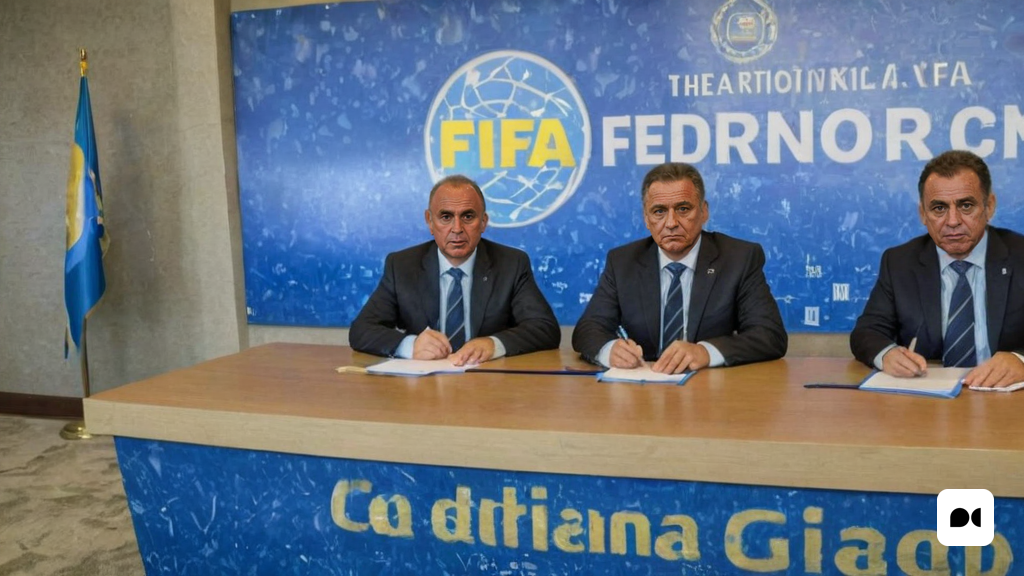The island delivers the additional documentation requested by FIFA
The island of Gran Canaria continues working to become one of the venues for the 2030 World Cup, which will be held in Spain, Portugal and Morocco. To this end, it has completed the attached documentation requested by FIFA last January, with new additional requirements, which have already been sent to the Royal Spanish Football Federation (RFEF) within the established deadline.
The document delivery ceremony was attended by the president of the Cabildo of Gran Canaria, Antonio Morales; the mayor of Las Palmas de Gran Canaria, Carolina Darias; the Minister of Sports, Aridany Romero; and the president of the Inter-Insular Football Federation, José Juan Arencibia, who expressed their commitment to signing all the agreements required by FIFA to qualify to host the World Cup.
Host city commitments
Among the documentation that has been sent, the Host City Declaration stands out, which corresponds to the City Council of Las Palmas de Gran Canaria, which undertakes to comply with a series of basic requirements based on respect for the Charter of Human Rights; with the law and with the rights of workers and children, non-discrimination, the guarantee of freedom of expression and freedom of the press, or the provision of security and prevention measures.
Likewise, the host city must create an environment of environmental protection and responsibility regarding aspects such as water consumption, energy, transportation or tourism.
The services that the headquarters must offer
The Host City Agreements, also signed by the Las Palmas de Gran Canaria City Council, include everything related to the services that the headquarters must provide and that include hotel and hospital infrastructure, complementary sports facilities, mobility policies, fanzone for hobbies, or different spaces for carrying out the work associated with holding a World Cup.
The collaboration of the Cabildo and the Federation
The Adhesion Agreement, signed by the City Council of Las Palmas de Gran Canaria and the Island Council of Gran Canaria, delves into the previous two, with the participation of the island corporation in the development of measures related to urban transport, security measures, fields training, also guaranteeing the operation of the airport, training of volunteers, etc. Mobility policies should provide for free public transport to be available to access relevant sites and facilities, including the stadium, airports and other transport hubs, the locations of any FIFA fan festivals and accommodation sites. official, as well as tourist areas. Each ticket holder will have the right to use public transport within the venue free of charge on the relevant match days.
The agreement corresponding to the Agreements on the Stadium, sealed by the Island Council of Gran Canaria, as owner of the Gran Canaria Stadium, which will host the matches of the aforementioned World Cup, and which details all the characteristics required by FIFA, was also transferred. to host this competition, regarding the completion deadlines for the stadium completion works, capacity, press areas, VIP areas, parking… The stadiums must have a minimum capacity of 40,000 general seats for group stages, round of 16 and quarterfinals. final. Guidelines are also required for accessibility, the quality of sight lines within the field, the distribution of VIP areas (about 800 seats), spaces for media, measurements of the playing field, auxiliary areas, the various parking, team access, locker room sizes, anti-doping controls and medical spaces, security infrastructure, lighting, giant screens, or hospitality areas.
The president of the Inter-island Football Federation of Las Palmas signed the Declaration of FIFA regulatory compliance, as a representative of FIFA itself throughout this candidacy application process.




